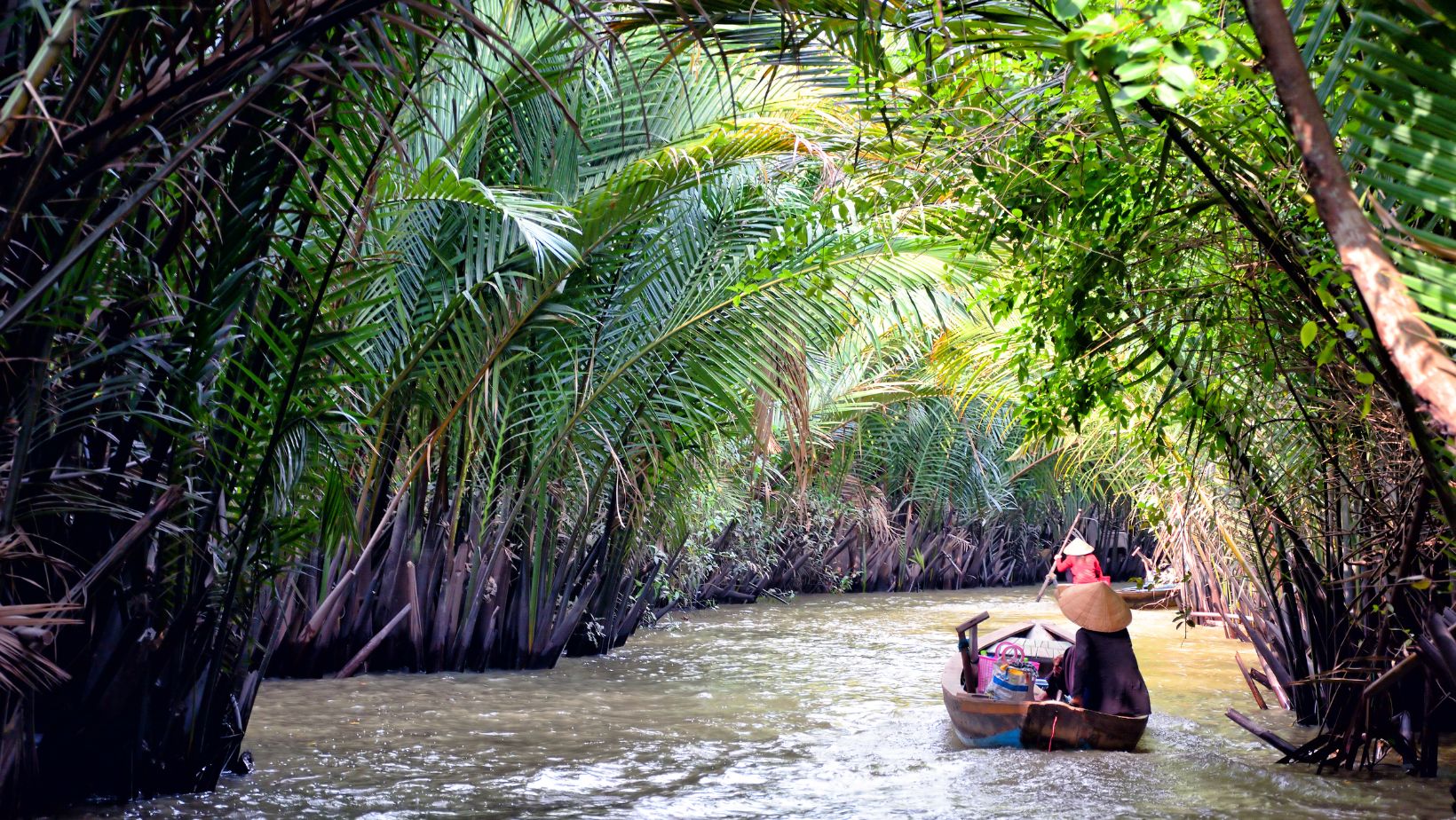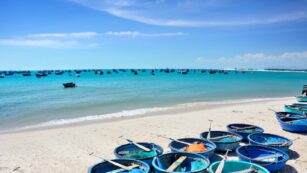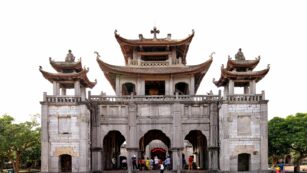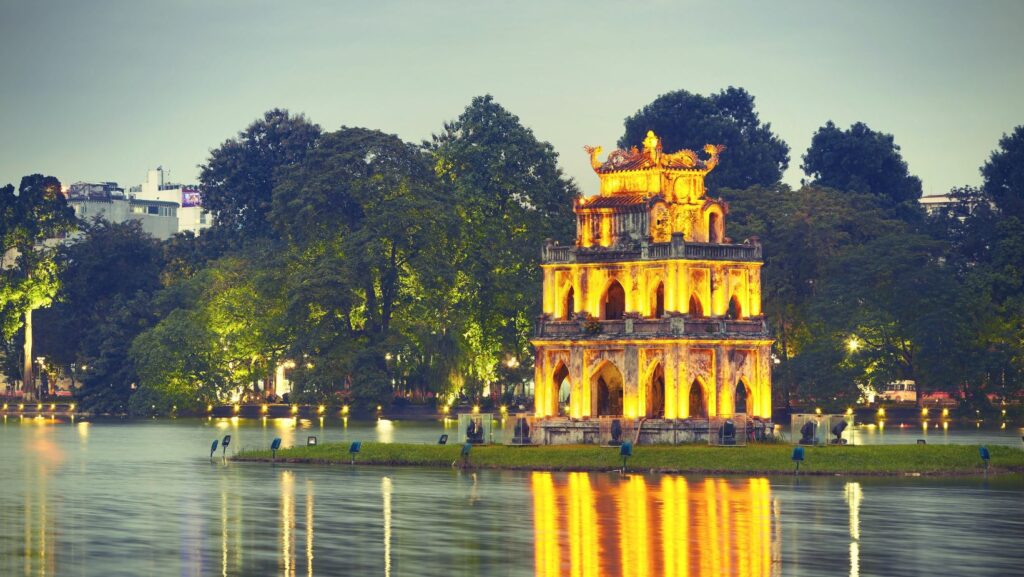
Vietnam, a vibrant tapestry of lush landscapes and bustling cities, beckons expatriates with its promise of adventure and affordability. Whether drawn by the allure of its cultural richness or the economic opportunities in burgeoning sectors, many find moving to Vietnam an exciting prospect. From the aromatic street foods of Hanoi to the architectural elegance of Ho Chi Minh City, the country offers a dynamic setting that fuses tradition with modernity.
Moving to Vietnam
Relocating to Vietnam offers expatriates a unique blend of advantages, from intriguing cultural experiences to significant economic opportunities. This section explores the lifestyle benefits and economic potential that draw individuals to this dynamic country.
Lifestyle Benefits
 Vietnam boasts a remarkably affordable cost of living combined with a rich cultural heritage, which provides an attractive balance for many expatriates. Cities like Hanoi and Ho Chi Minh City offer thriving expat communities where newcomers find it easy to integrate and form connections. The availability of international schools, diverse culinary scenes, and abundant leisure activities—from street markets to museums—enhance the daily life of residents. Moreover, Vietnam’s healthcare system is undergoing rapid improvements, making healthcare services more accessible to foreigners.
Vietnam boasts a remarkably affordable cost of living combined with a rich cultural heritage, which provides an attractive balance for many expatriates. Cities like Hanoi and Ho Chi Minh City offer thriving expat communities where newcomers find it easy to integrate and form connections. The availability of international schools, diverse culinary scenes, and abundant leisure activities—from street markets to museums—enhance the daily life of residents. Moreover, Vietnam’s healthcare system is undergoing rapid improvements, making healthcare services more accessible to foreigners.
Economic Opportunities
Vietnam’s economy has been steadily growing, marked by an increase in foreign investment and the expansion of trade agreements. Key sectors such as technology, manufacturing, and tourism open a host of job opportunities for skilled expatriates. The government’s commitment to economic modernization and favorable business policies have also improved the ease of doing business in Vietnam. As a result, entrepreneurs and business professionals find Vietnam an ideal place to start new ventures or expand existing ones, given its strategic location in Southeast Asia and the availability of skilled labor at competitive costs.
Preparing for the Move
Necessary Documentation and Visas
 To move to Vietnam, individuals must obtain the proper visas and pertinent documentation. The most common visa types for expatriates include the Business Visa (DN), the Working Visa (LD), and the Temporary Resident Card, which can extend up to three years. Applicants need to submit a visa application form, a passport valid for at least six months, passport-sized photos, and a visa approval letter from the Immigration Department of Vietnam. If employed, a sponsorship letter from the Vietnamese company is also necessary. For those planning a prolonged stay or business activities, contacting the Vietnamese embassy for detailed and updated information proves beneficial, and applicants may also need to remove background from their passport-sized photos to meet official requirements.
To move to Vietnam, individuals must obtain the proper visas and pertinent documentation. The most common visa types for expatriates include the Business Visa (DN), the Working Visa (LD), and the Temporary Resident Card, which can extend up to three years. Applicants need to submit a visa application form, a passport valid for at least six months, passport-sized photos, and a visa approval letter from the Immigration Department of Vietnam. If employed, a sponsorship letter from the Vietnamese company is also necessary. For those planning a prolonged stay or business activities, contacting the Vietnamese embassy for detailed and updated information proves beneficial, and applicants may also need to remove background from their passport-sized photos to meet official requirements.
Handling Finances and Banking
Managing finances effectively is crucial when moving to Vietnam. Expatriates should open a bank account with a local Vietnamese bank or an international bank with branches in Vietnam to facilitate easier access to banking services and better management of daily expenses. Major banks like Vietcombank and HSBC provide services tailored to foreign residents, including multi-currency accounts and online banking options.
Finding a Place to Live
Rental Markets in Major Cities
 Navigating the rental market in Vietnam’s major cities such as Hanoi and Ho Chi Minh City requires familiarity with local practices. Rental prices fluctuate significantly based on location, amenities, and property types. In Hanoi, tenants can explore options from modern apartments in the city center to quieter residences in the outskirts. Ho Chi Minh City offers high-rise condominiums with luxurious amenities as well as more traditional homes in its various districts.
Navigating the rental market in Vietnam’s major cities such as Hanoi and Ho Chi Minh City requires familiarity with local practices. Rental prices fluctuate significantly based on location, amenities, and property types. In Hanoi, tenants can explore options from modern apartments in the city center to quieter residences in the outskirts. Ho Chi Minh City offers high-rise condominiums with luxurious amenities as well as more traditional homes in its various districts.
Choosing the Right Neighborhood
Selecting the right neighborhood is crucial for ensuring comfort and access to necessary facilities. Expatriates often prefer districts that provide a balance of Vietnamese culture and expat amenities. In Hanoi, the Tay Ho (West Lake) district appeals to many foreigners with its serene atmosphere and proximity to international schools. Similarly, District 2 and District 7 in Ho Chi Minh City are popular among expats for their modern infrastructure and vibrant community life.
Short-Term vs. Long-Term Accommodation
Deciding between short-term and long-term accommodation depends on one’s duration of stay and flexibility needs. Short-term options like serviced apartments offer flexibility and convenience, typically including furniture and utilities, which is ideal for those unfamiliar with the area or in Vietnam for a brief period. Long-term leases provide a cost-effective solution but usually require a commitment of at least one year and involve setting up utilities independently.


